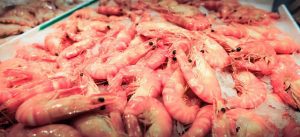Posted in Business Litigation, Civil Litigation, Intellectual Property

The purported class action filed in federal court in San Francisco seeks an injunction to prevent Costco and its Thai seafood supplier, CP Foods, from selling shrimp sourced from Thailand unless consumers are warned they are the product of slavery. The lawsuit claims,
- Costco has bought and resold farmed shrimp for several years from Thai company CP Foods and other companies that feed their farmed shrimp fish caught from ships manned by slaves.
- The plaintiff, Monica Sud, states she bought shrimp from Costco and the proposed class action could cover millions of California customers.
- CP Foods, the world’s largest shrimp farmer,buys fishmeal to feed its farmed shrimp from some suppliers that own, operate or buy from fishing boats manned with slaves.
- “Any representation by Costco that slavery in the supply chain is not allowed is simply false… Costco continues to unlawfully induce consumers to buy Costco farmed prawn products… through the use of slave labor.”
The lawsuit stems from an investigation by the Guardian last year which tracked the farmed Thai shrimp supply chain and reports by the UN and non-governmental organizations that found human traffickers supplying forced labor for the Thai fishing industry. The investigation found,
- Large numbers of men were bought and sold and held against their will on fishing boats off Thailand.
- Some who escaped from these boats reported horrific conditions, including twenty hour shifts, regular beatings, torture and execution-style killings. Those enslaved on these “ghost ships” are reportedly kept in cages to prevent them from escaping.
- This labor was an important part of the production of farmed shrimp sold to leading supermarkets around the world including Walmart and Costco.
Costco responded to the lawsuit with in a statement that accusations of slave labor in the Thai fishing industry were made more than a year ago and, “Costco Wholesale has been working with and will continue to work with various stakeholders (including the Thai government, other retailers, and Thai industry) to address the issues that have surfaced…In the meantime, all of our customers know that if they are dissatisfied with any purchase from Costco Wholesale they can return the item for a full refund.”
Costco in 2014 stated it would require its Thai shrimp suppliers to “take corrective action to police their feedstock sources” and that it doesn’t tolerate human trafficking or slavery in its supply chains. CP Foods has stated it complies with the law and denies the allegations.
The federal Tariff Act of 1930 prohibits importation of merchandise produced by prison labor, slaves or forced child labor. In 2011 the U.S. Department of Labor estimated that over a hundred products from 71 countries were the product of child or slave labor, according to Canadian newspaper National Post, which published an infographic on the issue.
If you have questions about your suppliers could possibly land your company in court, contact our office so we can discuss your concerns, your potential liability and how to protect your business.
